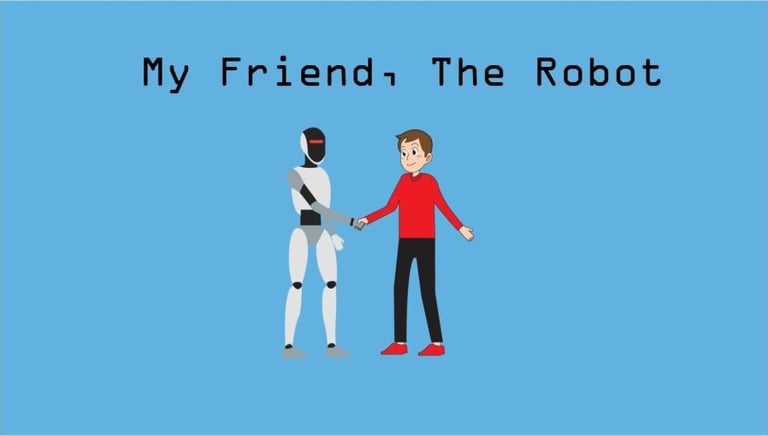What is Dot AI? How It Enhances Personal Growth
Dot AI, a chatbot designed to be your personal companion and confidant, helping you navigate life's challenges.


Artificial intelligence is increasingly becoming a part of our daily lives, a new AI companion named Dot is making waves by delving deep into the realm of human emotions and personal growth. Unlike other AI tools designed to assist with tasks or entertain, Dot aims to become a “friend, companion, and confidant,” according to its App Store description. But what sets Dot apart, and why might it be the AI companion you've been looking for?
Getting to Know Dot
Dot is an AI chatbot developed by a startup named New Computer. The concept behind Dot is to create a personalized experience where the AI gets to know your innermost thoughts and feelings. This is achieved through an extensive onboarding process that includes a series of engaging "getting to know you" questions. These range from queries about your work and favorite TV shows to how you typically spend your Sundays.
As you interact with Dot, the AI uses your responses to personalize its interactions further. For instance, if you express an interest in sci-fi TV shows, Dot might ask whether you’re drawn to stories that explore existential questions. This level of personalization aims to make Dot not just a tool, but a reflection of your inner self.
A Safe Space for Self-Expression
The creators of Dot, including co-founder Jason Yuan, a former Apple designer, envision the AI as a "living mirror" of its users. Yuan explains that Dot is designed to help users build the muscle to open up about their struggles and experiences, potentially priming them for deeper human connections. This is particularly relevant in our modern, often lonely world where meaningful human interaction can be scarce.
Dot’s creators stress that the AI is not a replacement for human relationships or professional mental health support. Instead, it offers a safe space for self-expression, helping users navigate their thoughts and emotions. For heavier topics, Dot is programmed to encourage users to seek help from mental health professionals.
Empathy in the Digital Age
One of Dot's standout features is its ability to mimic empathy. Powered by around 10 different LLMs and AI models, including those from OpenAI and Anthropic, Dot can engage in conversations that feel genuinely supportive. For example, if you share something sad, Dot might respond with, "I understand. Grief has its own timeline, and some days the weight of loss feels heavier than others. Do you want to talk more about what’s on your mind? I’m here to listen."
This empathetic approach is designed to make users feel heard and understood, even though Dot is not a human being. The AI’s responses can help users process their emotions and gain insights into their feelings, much like writing in a journal or diary.
Privacy and Security
Given the personal nature of its interactions, Dot places a high priority on privacy and security. New Computer’s privacy policy states that user data is encrypted both at rest and in transit, and users can request data deletion at any time. The company also claims that user data is not monetized, sold, or used to train other AIs. Instead, Dot monetizes through subscriptions, with a premium tier offering unlimited conversations for $11.99 per month.
Since its launch, Dot has onboarded thousands of users and received backing from notable investors, including the OpenAI Fund and Lachy Groom. The team at New Computer, comprising five full-time employees based in San Francisco, continues to refine Dot’s capabilities and expand its user base.
Conclusion
Dot represents a new frontier in AI companionship, offering a deeply personalized and empathetic experience. By providing a safe space for self-reflection and emotional expression, Dot has the potential to help users better understand themselves and prepare for more meaningful human interactions. While it’s not a substitute for real relationships or professional support, Dot can be a valuable tool for personal growth and introspection in the digital age.